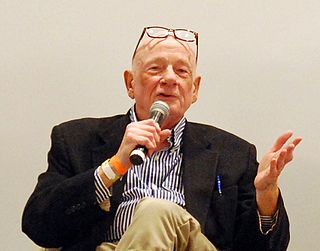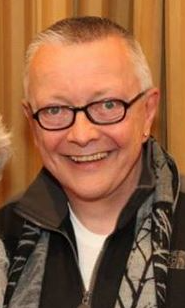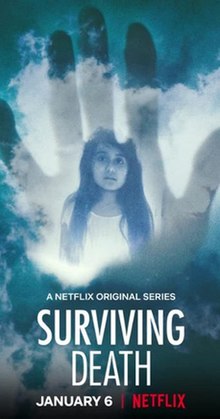Paranormal events are purported phenomena described in popular culture, folk, and other non-scientific bodies of knowledge, whose existence within these contexts is described as being beyond the scope of normal scientific understanding. Notable paranormal beliefs include those that pertain to extrasensory perception, spiritualism and the pseudosciences of ghost hunting, cryptozoology, and ufology.
Skeptical Inquirer (S.I.) is a bimonthly American general-audience magazine published by the Committee for Skeptical Inquiry (CSI) with the subtitle "The Magazine for Science and Reason". The magazine initially focused on investigating claims of the paranormal, but evolved and expanded to address other pseudoscientific topics that are antithetical to critical thinking and science. Notable skeptics have credited the magazine in influencing their development of scientific skepticism. In the "Letters to the Editor", the most frequent letters of appreciation come from educators.

Scientific skepticism or rational skepticism, sometimes referred to as skeptical inquiry, is a position in which one questions the veracity of claims lacking scientific evidence. In practice, the term most commonly refers to the examination of claims and theories that appear to be unscientific, rather than the routine discussions and challenges among scientists. Scientific skepticism differs from philosophical skepticism, which questions humans' ability to claim any knowledge about the nature of the world and how they perceive it, and the similar but distinct methodological skepticism, which is a systematic process of being skeptical about the truth of one's beliefs.

Raymond A. Moody Jr. is an American philosopher, psychiatrist, physician and author, most widely known for his books about afterlife and near-death experiences (NDE), a term that he coined in 1975 in his best-selling book Life After Life. His research explores personal accounts of subjective phenomena encountered in near-death experiences, particularly those of people who have apparently died but been resuscitated. He has widely published his views on what he terms near-death-experience psychology.

Mediumship is the practice of purportedly mediating communication between familiar spirits or spirits of the dead and living human beings. Practitioners are known as "mediums" or "spirit mediums". There are different types of mediumship or spirit channelling, including séance tables, trance, and ouija. The practice is associated with spiritualism and spiritism. A similar New Age practice is known as channeling.
Gary E. Schwartz is an American psychologist, author, parapsychologist and professor at the University of Arizona and the director of its Laboratory for Advances in Consciousness and Health. Schwartz researches the veracity of mediums and energy healing. His mediumship experiments have been described as flawed by critics who have argued that they failed to use adequate precautions against fraud and sensory leakage, relied on non-standardized, untested dependent variables and unaccounted for researcher degrees of freedom.
Loyd Auerbach is a parapsychologist, paranormal investigator, and mentalist. He has appeared on television shows that profile ghost hunting and other paranormal topics and is the author of several books on ghost hunting, parapsychology, and other paranormal subjects as well as co-author of the Raney/Day Investigation novels. He was a columnist for Fate magazine. As a mentalist, he performs under the name "Professor Paranormal". He is also a chocolatier offering chocolate tasting classes and products through his website Haunted By Chocolate.

Ghost hunting is the process of investigating locations that are purportedly haunted by ghosts. The practice has been heavily criticized for its dismissal of the scientific method. No scientific study has ever been able to confirm the existence of ghosts. Ghost hunting is considered a pseudoscience by the vast majority of educators, academics, science writers and skeptics. Science historian Brian Regal described ghost hunting as "an unorganized exercise in futility".

Rudi Schneider, son of Josef Schneider and brother of Willi Schneider, was an Austrian Spiritualist and physical medium. His career was covered extensively by the Journal of the American Society for Psychical Research, and he took part in a number of notable experiments conducted by paranormal researchers/debunkers, including Harry Price, Albert von Schrenck-Notzing and Eric Dingwall. Some of these researchers declared him to be a fraud while others were unable to find evidence of trickery.

Steven Paul Novella is an American clinical neurologist and associate professor at Yale University School of Medicine. Novella is best known for his involvement in the skeptical movement as a host of The Skeptics' Guide to the Universe podcast and as the president of the New England Skeptical Society. He is a fellow of the Committee for Skeptical Inquiry (CSI).
Paranormal fiction is a genre of fiction whose story lines revolve around the paranormal.

Spook: Science Tackles the Afterlife (2005), published by W. W. Norton & Company, a nonfiction work by Mary Roach, is a humorous scientific exploration as to whether there is a soul that survives death. In Britain, the title of the book is Six Feet Over: Adventures in the Afterlife.
In psychology, anomalistic psychology is the study of human behaviour and experience connected with what is often called the paranormal, with few assumptions made about the validity of the reported phenomena.

Chip Coffey is an American self-proclaimed psychic from Elmira, New York, currently living in Atlanta, Georgia. He appeared as a medium on various paranormal television programs, primarily Paranormal State and Psychic Kids. On Psychic Kids he acts as a mentor towards children who claim to have psychic abilities, primarily seeing ghosts. Coffey's claims of being able to communicate with the dead have been subject to criticism by skeptics. In 2019 it was announced that Coffey will be joining Travel Channel's Kindred Spirits as the third official cast member alongside Adam Berry and Amy Bruni for the fourth season in 2020.
Doris Collins (1918-2003) was a British spiritualist and psychic medium.

Sharon A. Hill is an American science writer and speaker known for her research into the interaction between science and the public, focusing on education and media topics. Hill's research has dealt mainly with paranormal, pseudoscience, and strange natural phenomena and began at the University at Buffalo, where she performed her graduate work in this area. Hill attended Pennsylvania State University, earning her Bachelor of Science degree in geosciences and working as a Pennsylvania geologist.

Kathleen Goligher was an Irish spiritualist medium. Goligher was endorsed by engineer William Jackson Crawford who wrote three books about her. She was exposed as a fraud by physicist Edmund Edward Fournier d'Albe in 1921.
Danis Goulet is a First Nations (Cree-Métis) film director and screenwriter from Canada, whose debut feature film Night Raiders premiered in 2021.

Renée Firestone is a Hungarian-Jewish survivor of the Holocaust and educator, who became known for her fashion designs in the 1960s after she immigrated to the United States.
The Parker Andersons and Amelia Parker are a pair of related Canadian television sitcoms, which premiered in 2021 on Super Channel. The shows both depict a blended family living in the suburbs of Chicago following the remarriage of widower Tony Parker and divorced single mother Cleo Anderson ; while they share interconnections of character and storyline, The Parker Andersons centres on the whole family, while Amelia Parker focuses more specifically on the particular experiences of Tony's teenage daughter Amelia, who is still coping with the death of her mother and struggling with the anxiety disorder of selective mutism.











